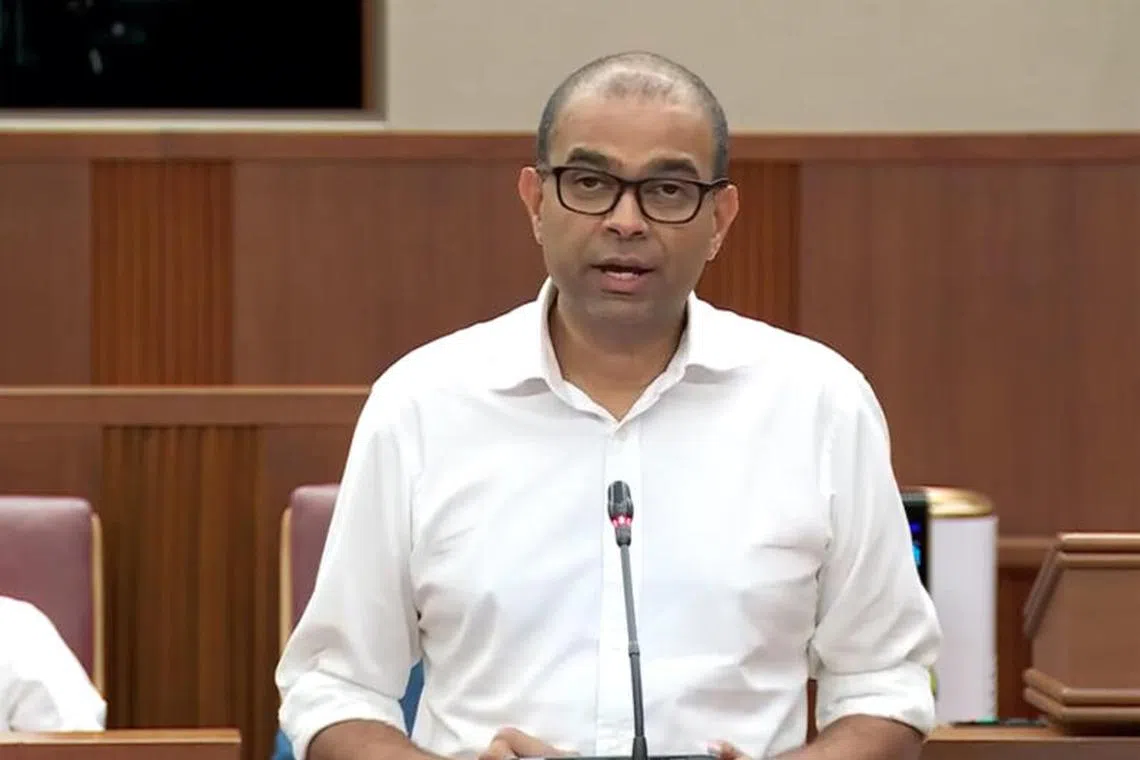MOH supporting development of mRNA cancer vaccines in Singapore
Sign up now: Get ST's newsletters delivered to your inbox

Dr Janil Puthucheary noted that research on the efficacy of mRNA-based cancer vaccines is still at an early stage.
PHOTO: MCI
SINGAPORE - The development of mRNA-based cancer vaccines in Singapore is being funded by the Ministry of Health (MOH), as part of its support for “competitive cancer research projects” here, said Senior Minister of State for Health Janil Puthucheary.
One such project, by the National University of Singapore, is studying if a personalised RNA-based cancer vaccine can be combined with RNA-based immunotherapy for patients suffering from acute myeloid leukaemia.
The Agency for Science, Technology and Research is also spearheading research to develop better mRNA vaccines against the Epstein-Barr virus, which is associated with nasopharyngeal cancer, a disease that affects Asians disproportionately, Dr Janil told Parliament on Tuesday.
He was responding to a parliamentary question by Mr Leon Perera (Aljunied GRC) on what the Government is doing to fast-track the development and launch of mRNA-based vaccines in Singapore.
Funding for these projects is disbursed through the National Medical Research Council, which oversees the development and advancement of medical research in the country.
Such mRNA technology, which is used in the Covid-19 vaccines developed by Pfizer-BioNTech and Moderna, has been tested in small trials for cancer treatments for several years.
Vaccines based on mRNA, or messenger ribonucleic acid, teach cells to make a protein to prompt an immune response.
In December 2022, Moderna and pharmaceutical company MSD announced that an mRNA cancer vaccine they are jointly developing reduced cancer recurrence or death in melanoma patients by 44 per cent in a phase two clinical trial.
Describing cancer as a “priority disease area for research” here, Dr Janil, who is also Senior Minister of State for Communications and Information, noted that research on the efficacy of mRNA-based cancer vaccines is still at an early stage, with none yet approved to treat or prevent cancer.
“However, given the potential of this approach, MOH will continue to support the development of suitable mRNA-based vaccines to treat cancer as well as other important medical conditions in Singapore,” he added.
The ministry will provide funding support for such research and support research collaborations between researchers in Singapore and their overseas partners, as well as support local research on diseases that disproportionately affect ethnic populations here.
Through the Singapore Translational Cancer Consortium, established in 2020 to coordinate cancer research here at the national level, MOH will also work to “better coordinate, integrate and support the work of key local cancer research stakeholders”, said Dr Janil.


